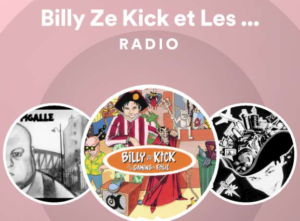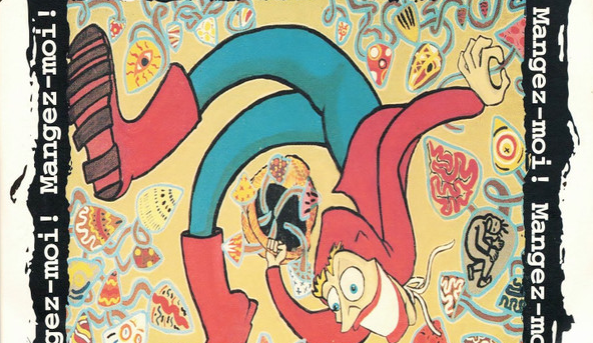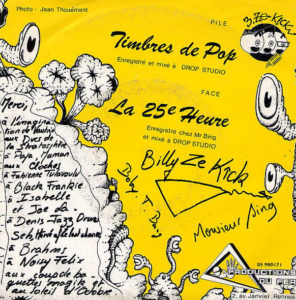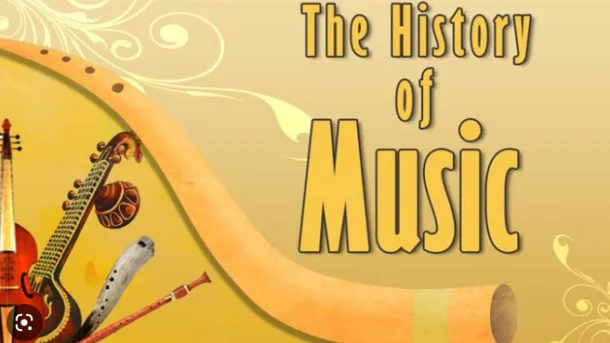Billy Ze Kick was a French alternative rock band that rose to fame in the 1990s. The band’s unique sound and style were heavily influenced by French culture and history. In this article, we will explore the various ways in which French culture has shaped the music of Billy Ze Kick.

French Chanson Tradition
The French chanson tradition is a form of lyric-driven songwriting that originated in France in the early 20th century. Billy Ze Kick’s music reflects the influence of chanson in several ways. For example, the band’s lyrics are often poetic and introspective, and their melodies are simple and catchy.
French Punk and Rock Music
The French punk and rock music scene emerged in the late 1970s and early 1980s and was heavily influenced by the punk and rock scenes in the UK and the US. Bands such as Téléphone and Noir Désir were among the most popular and influential groups of the era. Billy Ze Kick’s music reflects the punk and rock influences in several ways. However, the band’s music also diverges from the traditional punk and rock sound, incorporating elements of funk, reggae, and ska into their music.
French Politics and Social Issues
France has a rich history of political and social activism, and Billy Ze Kick’s music reflects this tradition. The band’s music often addresses social and political issues that were prevalent in France during the band’s heyday. For example, the band’s hit single “Mangez-Moi!” addresses the issue of unemployment, which was a major concern in France during the 1990s. Additionally, the band’s music often addresses issues of racism and inequality, reflecting the social issues that were prevalent in France at the time. The band’s political stance influenced their music and message, making them an important voice for social and political change in France.
French Language and Literature
The French language and literature have had a profound influence on Billy Ze Kick’s music. The band often incorporates French language and literary references into their music, reflecting their deep appreciation for French culture. For example, the band’s song “OCB” is a reference to a popular brand of rolling papers in France, while their song “Le Bruit et L’Odeur” is a reference to a controversial statement made by French President Jacques Chirac in 1991. Additionally, the band’s lyrics often feature poetic and literary references, such as the use of the word “vermisseau” (worm) in their song “Mangez-Moi!”.
French Art and Film
French art and film have also had a profound influence on Billy Ze Kick’s music. For example, the band’s music videos often feature surreal and abstract imagery, reflecting the influence of French surrealist artists such as René Magritte and Salvador Dalí. Additionally, the band’s lyrics often reference French cinema and literature, such as the use of the phrase “La Haine” (The Hate) in their song “Mangez-Moi!” which is a reference to the 1995 French film of the same name.
French Musette
Another influence on Billy Ze Kick’s music was French musette, a style of music that originated in Paris in the late 19th century. Musette music features the accordion as its main instrument and often incorporates elements of waltz, tango, and other dance styles. Billy Ze Kick’s music features the accordion prominently, and the band often incorporates elements of musette into their music. For example, their song “Le Bruit et L’Odeur” features an accordion solo that pays tribute to the musette tradition.
Conclusion
In conclusion, the music of Billy Ze Kick was heavily influenced by French culture in a variety of ways. The band’s music reflects the influence of the French chanson tradition, as well as the French punk and rock scene of the 1970s and 1980s. Additionally, the band’s music reflects the social and political issues that were prevalent in France during the 1990s, as well as the influence of the French language, literature, art, and film. The band’s unique sound and style were a testament to the power and influence of French culture on the music world, and their legacy continues to inspire new generations of musicians and fans today.









